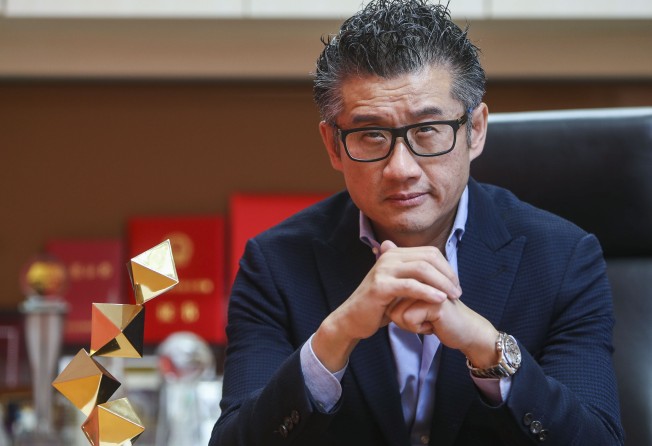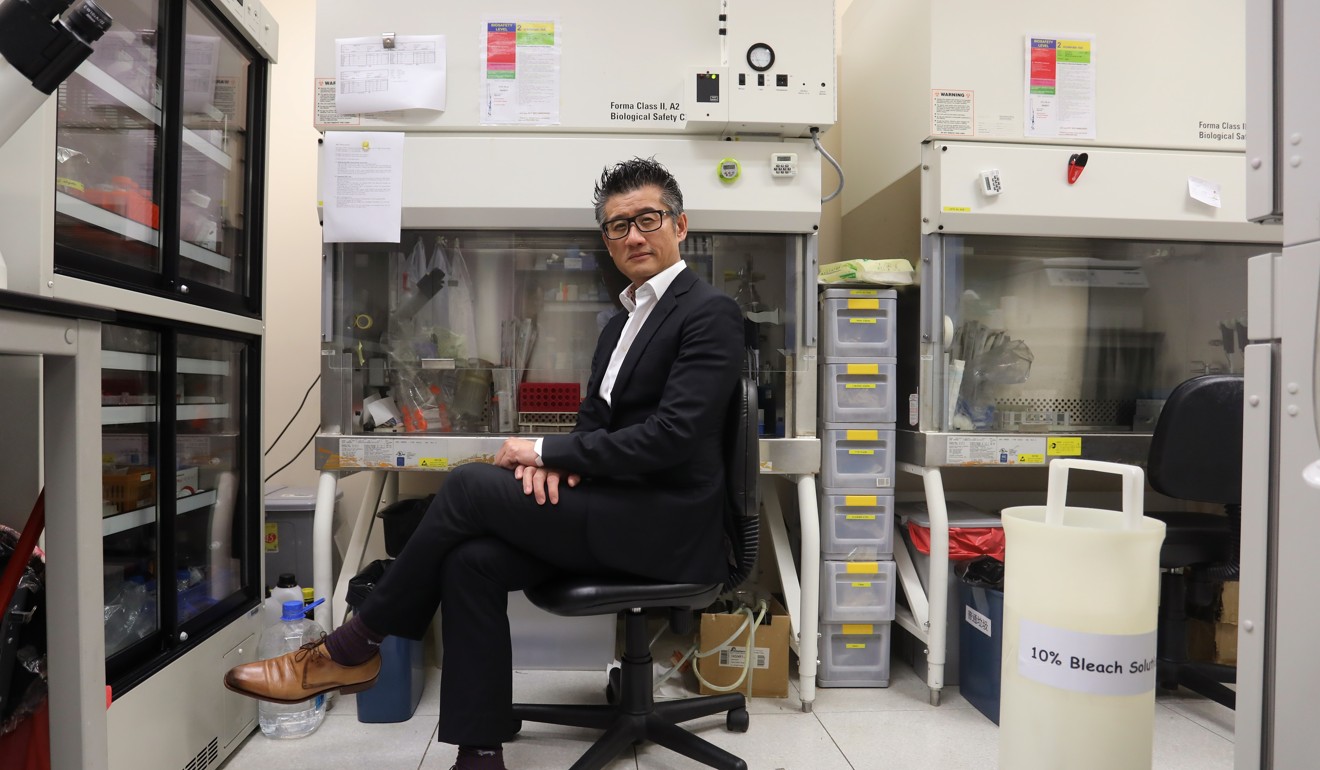Don’t rely only on government, top Hong Kong oncologist Tony Mok tells young researchers in innovation, technology sector
- Chairman of Chinese University’s department of clinical oncology recalls early days when he did lab work on shoestring budget
- Lung cancer expert last month was the first Chinese to be conferred the Lifetime Achievement Award from the European Society for Medical Oncology

A top Hong Kong oncologist who has recently been conferred a prestigious international award has said local researchers need to rely on their own efforts to create a favourable environment for their work.
Professor Tony Mok Shu-kam, chairman of Chinese University’s department of clinical oncology, said he agreed the research scene in Hong Kong had improved in recent years, with the government recognising the field of innovation and technology as one of the city’s economic pillars.
“There has been more money invested and voices in this area. This is a change,” said Mok, 58, a lung cancer expert. “Hong Kong is no longer only about property and finance.”
The government earlier this year announced to set aside HK$50 billion to support innovation and technology development, including funds for establishing research clusters.
Mok last month received the Lifetime Achievement Award from the European Society for Medical Oncology for his work in lung cancer research – the first Chinese bestowed the honour.
While some researchers have previously lamented the lack of government funding for universities, Mok said he believed that the administration, while important, should not be the only side relied on for resources.
“The government can help facilitate the process and make life easier for us. But the responsibility is on us to fight for the resources we need,” he said, noting that funding could come from donations or from pharmaceutical firms.
Looking back on his career in research, which began after he joined Chinese University in 1996, Mok recalled that resources were tight in the early days.
He said four factors – drugs, money, research manpower and patients – were essential for clinical research, but they only had patients back then.
For his first clinical trial, which started in 1998, Mok was given only around US$20,000 and some drugs for the study.

“US$20,000 for a study was similar to giving you HK$10 for a dish of soy sauce chicken,” Mok said, referring to a local dish costing dozens of dollars.
With the help of staff who were willing to work for free, Mok completed the trial on a tight budget, and since then, more drug makers approached him for tests.
Mok rose to fame in academia after releasing a study in 2009 on treatment options for lung cancer patients with mutation in the epidermal growth factor receptor (EGFR) gene, a condition common among Asian patients.
The study established that targeted therapy was more effective than chemotherapy for the condition.
A new treatment paradigm for lung cancer has been set since then, and now doctors check if patients have the mutation before recommending the course of treatment.
As for advice for young people, Mok said they should have a clear goal in mind and work towards this, especially for those in innovation and technology, with the government providing funding, infrastructure and welcoming new blood.
“You must create a dream for yourself,” he said. “Then do the best you can, no matter in what kind of environment.”